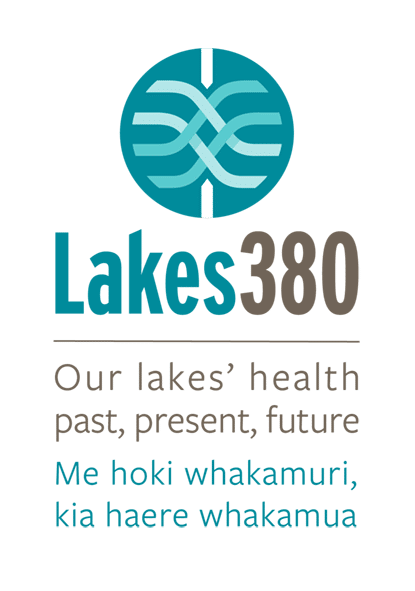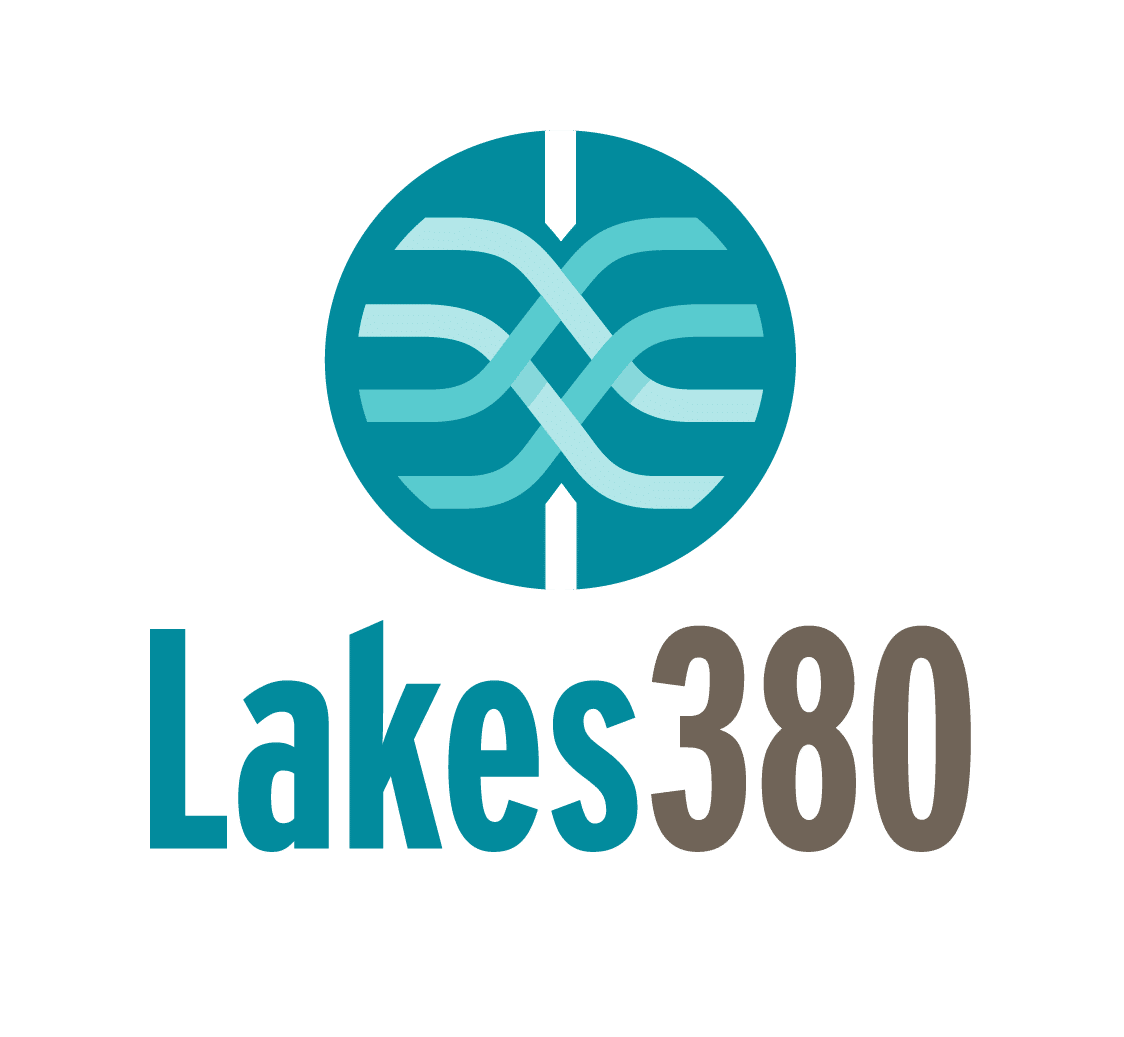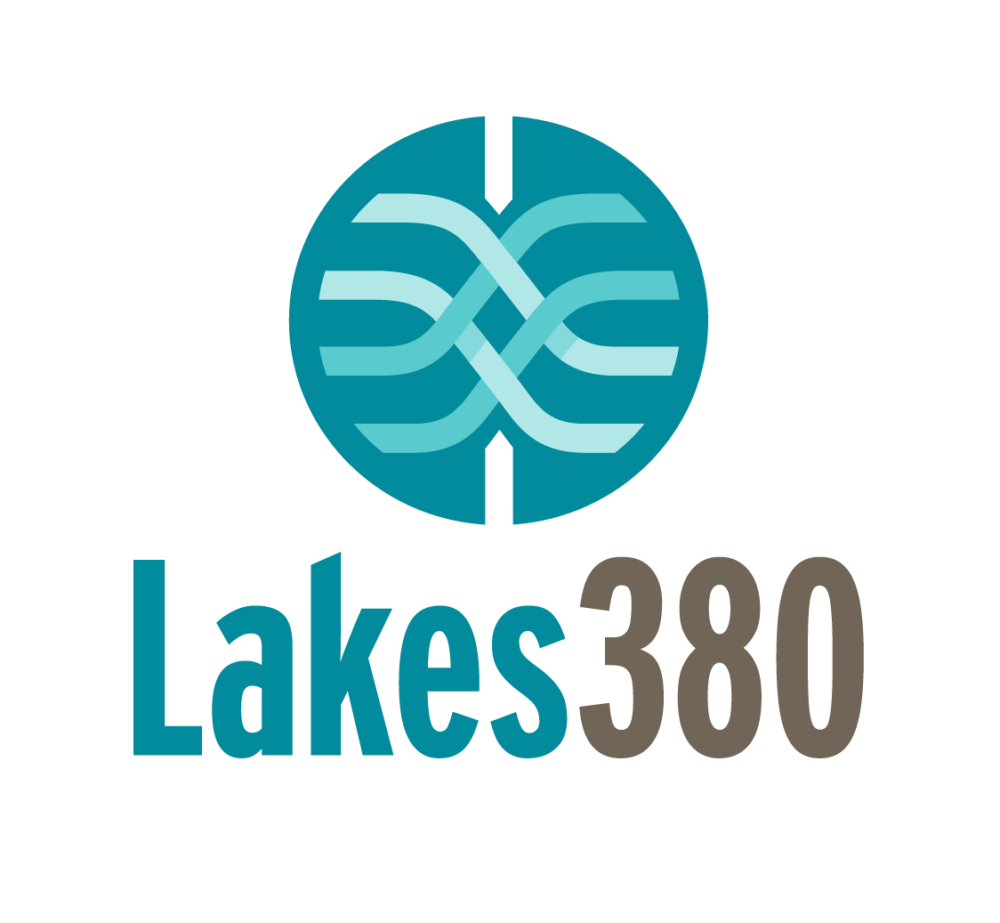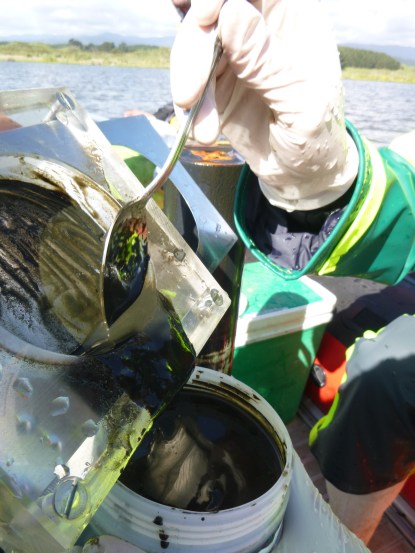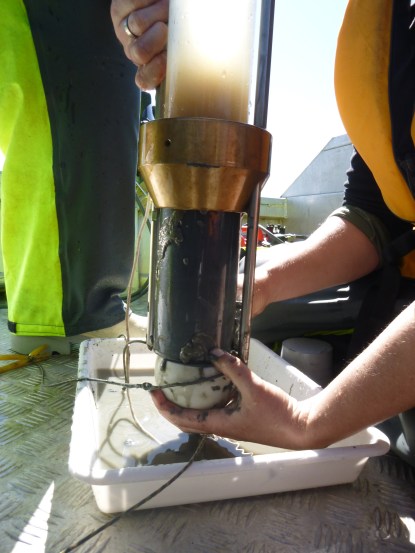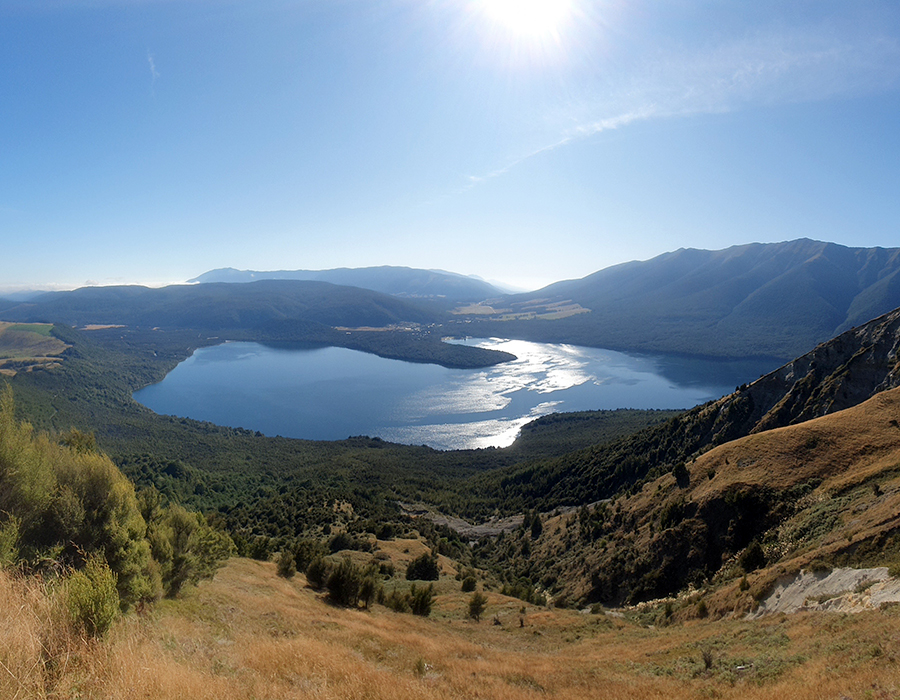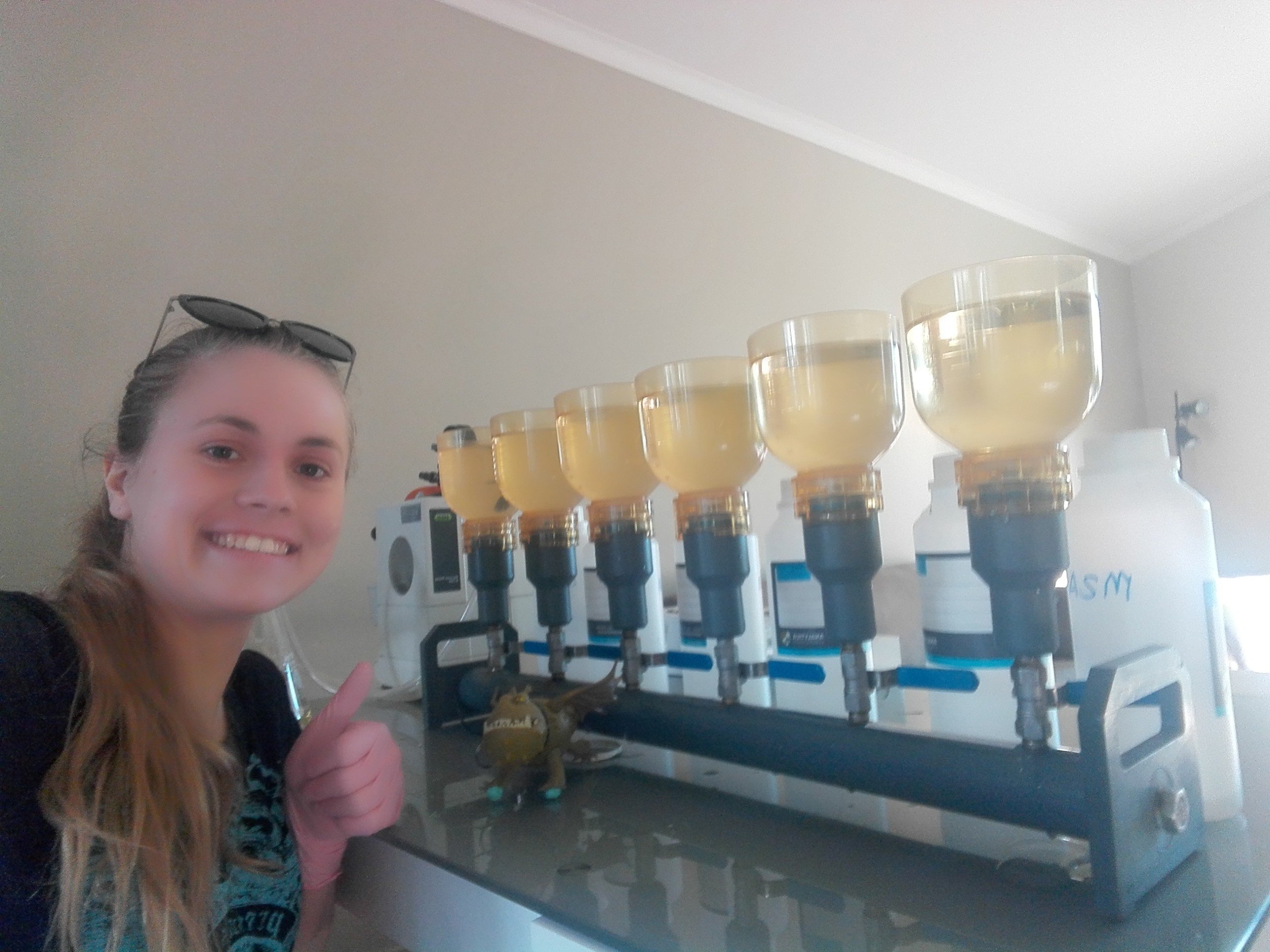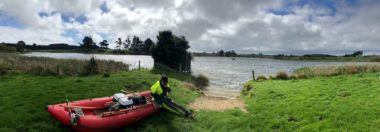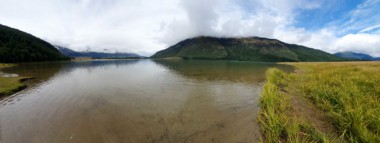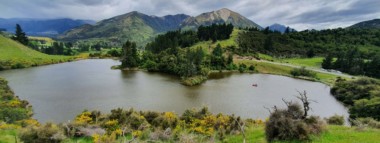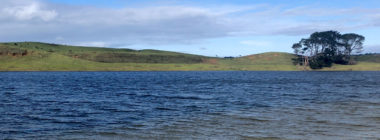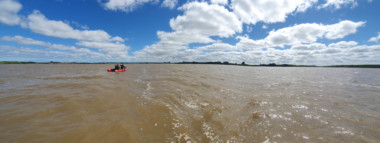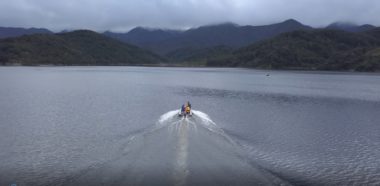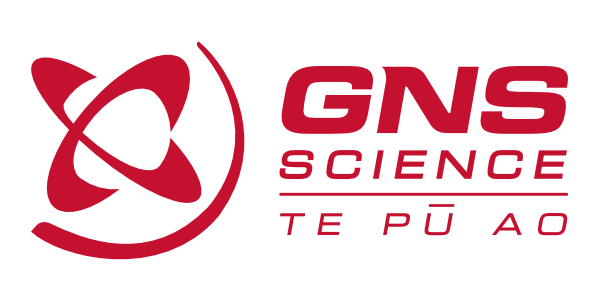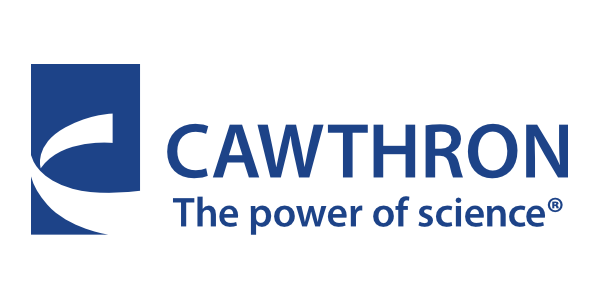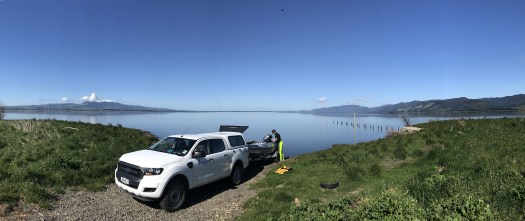
Our Lakes380 campaign began in earnest last week when the team descended upon Lake Waitawa, near Otaki, to collect our first samples in the Wellington region. The team included eight people, two boats, and three vehicles packed to the brim with all manner of equipment. Our mission: to collect all samples and clean down within half a day.
The first lake was always going to be a learning experience; the loose soupy mud and thick algal blooms at Lake Waitawa presented some logistical challenges. Nearby Lake Waiorongomai, a shallow coastal dune lake, was our second target and the first test for our shiny, new, red inflatable raft – would it fit the bill for those remote South Island lakes, accessible only by helicopter?
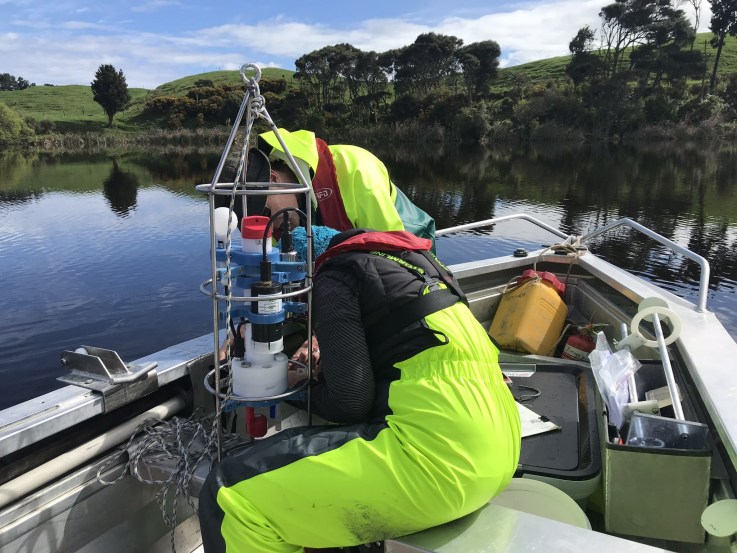
While the GNS Science crew retrieved four long cores from the lake bed, the rest of the team listened intently to some great korero from local kaitiaki, Caleb Royal – tales of how his ancestors once fished thousands of tuna (eels) from Waiorongomai and would bathe in its water to wash away the blood and anguish of battle on their journeys home.
Next stop was the Wairarapa and Lake Nganoke, a small shallow lake on private land in the south Wairarapa. Our sampling efforts on here saw us finishing in approximately 5 hours. We even had time to pick up a few extra samples from a very glassy, picturesque Lake Wairarapa (pictured above).
With some great improvements in coordination and teamwork we were starting to look like a pretty slick operation. The inflatable boat will be a great assets for the helicopter trips in the coming months, with the possible addition of a second smaller raft to speed up the process. Next on the agenda – sunny Nelson/Tasman! Watch this space for more updates in early November.
